Paul Glader is an associate professor at The King’s College and heads the arts and entertainment reporting track at Summer Academy. Glader spent 10 years as a staff writer at The Wall Street Journal, edited a blog on creativity and leadership for six years at Forbes.com and has written for many outlets including The Washington Post, Bloomberg BusinessWeek and Newsweek on topics such as business, finance, education, religion, arts and culture. A resident of Montclair, NJ, Glader is looking forward to another Summer Academy teaching high school students about reporting on arts and entertainment. This track runs from July 26 - 31. Despite the concerns and current lockdowns related to the Coronavirus pandemic, King’s is hopeful the pandemic recedes by late summer and is taking registrations to the Summer Academy program (which can possibly be delivered online if need be).
1. Why should a high school student attend Summer Academy at The King’s College?
As summer camps go, our week for high school students at King’s is incredibly unique. Instead of getting poison ivy, mosquito bites and pond algae infections at a woodsy camp, you will experience the biggest city in America with a group of other amazing high school students and with a staff and faculty that care about your intellectual and personal development. During the week at Summer Academy, we will introduce you to New York City—from the subway to museums and landmarks—in a safe and nurturing manner. And your journalism education is important to us. We want you to understand what it’s like to be a journalist in the news media capital of the world and to sample what it would be like for you to study in our high-performing journalism program at King’s.
2. What do students in the arts and entertainment track do at Summer Academy?
We explain the breadth of arts and entertainment coverage through discussions, lectures and exercises. We take students on a visit to at least one newsroom to see how they cover arts and entertainment such as video games or pop culture. We then zero in on a particular aspect of arts and entertainment reporting, usually writing about fine art. I pick an interesting museum to take students to for the week’s assignment. The museums have included the Museum of Modern Art (MOMA) and the Brooklyn Museum in past summers. The students have to research and report on an exhibit of their choice at the museum. They also usually visit the Metropolitan Museum of Art, a Broadway Show and other arts and entertainment locations and events during the week. And they hear lectures from other colleagues that give framework to New York City, The King’s College and Christianity and how arts and entertainment fit with each of those.
3. Why is arts and entertainment important?
During the Coronavirus pandemic, where do we turn for solace: family, religion and, yes, arts and entertainment. We play music in our homes. We eat food. We watch movies. We watch programming on TV and streaming services. All of these are cultural artifacts, written and produced by humans. Arts and entertainment is a big part of our economy and our lives. It also flows from human creativity and productivity. So we aim to deepen your understanding of how these artifacts are produced and how they are economically sustained. And, most of all, we want to help you learn how to approach culture (high and low) with a wise skepticism as advocated by C.S. Lewis in his work “An Experiment in Criticism.” We think about how Christian people might think about culture, approach culture and report on culture.
4. What experience do you and King’s have with arts and entertainment journalism?
I read a book one time. Ha. Seriously. I’m a voracious and enthusiastic consumer of arts and entertainment. I have written about culture—from skateboarding and snowboarding to architecture to food—at publications ranging from my college newspaper to Christianity Today to The Wall Street Journal and, now, at the site I helped launch and for which I serve as executive editor: ReligionUnplugged.com. Also, I often assign, coach and edit my students and young journalists who are writing about arts and entertainment. Many of my colleagues at King’s also write about arts and entertainment for sites ranging from Vox to The Guardian. You will hear from some of them during Summer Academy as well.
5. Why should I study arts and entertainment journalism in New York City?
New York City is an epicenter, if not the epicenter, for several parts of the arts and entertainment world. It is the hub for book publishing. It is arguably the most important hub in the United States for fashion. It’s perhaps the hub of food journalism / food media. And it rivals Los Angeles as a hub for film and television. Hip-Hop and rap music was born in New York City and most other genres—from jazz to indie rock—has to travel through NYC at some point. So spending a week in NYC is vital to your knowledge and experience if you are a person driven to arts and entertainment.
For more information on Summer Academy, visit https://www.tkc.edu/summer-academy. For questions, please email summeracademy@tkc.edu.

